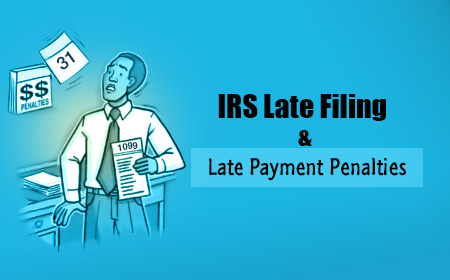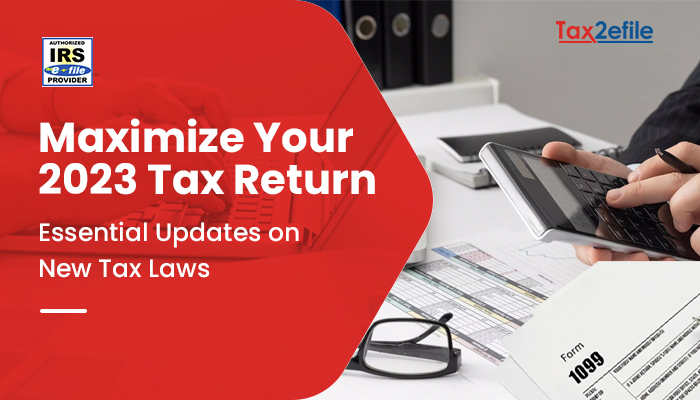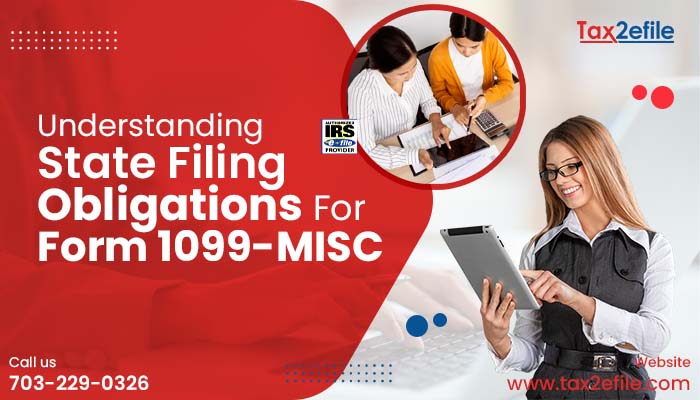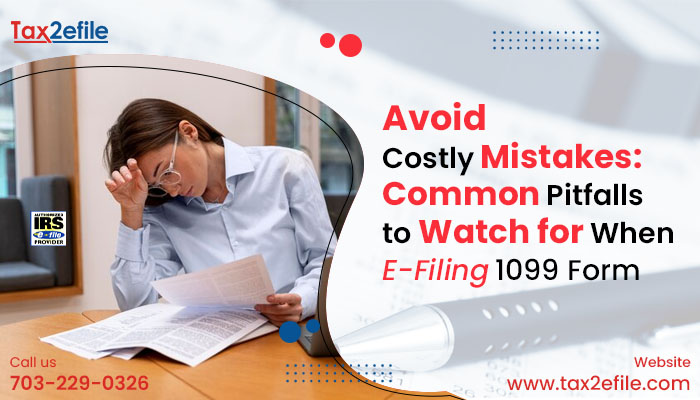- March 31, 2021

The IRS Form 1099 are a type of information returns form that is not part of the Income-tax returns. These forms should be filed with the IRS if the receiver has received at least $600 or an equivalent benefit from the provider during the tax year. There are many varieties of Form 1099 and the most common of these Forms are,
- Form 1099-MISC for miscellaneous payments
- Form 1099- INT for interest payments
- Form 1099 G for unemployment benefits
- Form 1099 C for forgiven debt.
What happens if Form 1099 is filed late with the IRS?
The Internal revenue service enforces the use of Form 1099 for small businesses to report their income and the risks of not filing the Form before the due date is pretty high. It is mandatory to fill the form completely and accurately, as not filing the correct statement can attract a penalty of $560 per Form, with no maximum limit for the year.
Also, late filing of Form 1099 can result in penalties that range from $50 to $280, which could amount to a maximum of $1,130,500 a year for small businesses. The due date for filing Form 1099 is March 1st of the tax year if the form is filed electronically. The following is the penalty levied for the late filing of Form 1099.
| The extent of late filing of Form 1099 | Penalty levied | Maximum penalty |
| Within 30 days of the due date | $50 per Form 1099 | $197,500 |
| More than 30 days after the due date, but by August 1st of the tax year | $110 per Form 1099 | $ 565,000 |
| Form filed after August 1st of the tax year | $280 per Form 1099 | $1,130,500 |
What if the taxpayer fails to furnish the payee statement?
If the taxpayer fails to provide the correct payee statement for the 1099 Form when they have paid them over $600 during the tax year, then they receive penalties, that equal the penalties of not filing Form 1099 with the IRS. But the penalties don’t apply for inconsequential errors. If the IRS deems the taxpayer to have disclosed partial information, then the penalty is $530 perform with no maximum penalty.
What can be done to avoid penalties?
To avoid penalties with Form 1099, taxpayers should send copy A of the Forms to the social security administration by January 31st of the tax year. This is applicable for submissions by post and by electronic filing. Copy B of the form should be sent to the concerned employee by January 31 of the tax year.
The last date to file Form 1099 by the paper is the last day of February of the next tax year. The last date for filing Form 1099 electronically is March 31. Also, employers who are filing 250 forms and more than that, should file them electronically, until they are granted a waiver by the Internal Revenue Service. Taxpayers should make sure to file the Form within the due date and report correct information, including the TIN number to avoid penalties.


